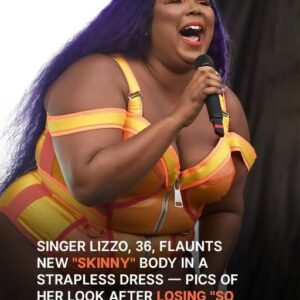President Donald Trump’s recent appearance at the U.S. Open drew a mix of loud boos, jeers, and occasional cheers from the crowd, sparking widespread discussion about public reaction to the former president. One expert says the response carries broader implications for freedom of expression.
Trump attended the tournament on Sunday afternoon to watch the men’s singles match between Jannik Sinner and Carlos Alcaraz, marking his first appearance at the U.S. Open as a sitting president. His previous visit was in 2015, when he was a presidential candidate.
According to the Associated Press, Trump received a mixed reception from the largely empty Arthur Ashe Stadium about 45 minutes before the match. The president faced both boos and cheers as he briefly appeared, and later, during the national anthem, he was again met with loud jeers and scattered applause. By the end of the first set, when he appeared on the jumbotron, the crowd’s boos lasted even longer.
Although Trump later told reporters that he thought the U.S. Open fans were “great” and seemed to focus on positive responses, many on social media celebrated the audible boos in video clips circulating online.
Some users criticized the U.S. Tennis Association (USTA), alleging censorship after reports emerged that the organization instructed broadcasters to “refrain from showcasing any disruptions or reactions in response to the president’s attendance in any capacity.” A USTA spokesperson clarified to The Athletic that such instructions are routine and apply generally to “off-court disruptions.”
Social media reactions highlighted the public’s interest in the moment. On X (formerly Twitter), one user wrote:
“Trump getting booed is exactly what America needed to see today!”
Another added:
“Listen to the boos in the Crowd as Trump arrives at the U.S. Open stadium. America is catching on.”
A third user commented:
“Trump claps for himself at the #USOpen — stadium erupts in boos. Broadcasters told not to air protests. Democracy on mute.”
Kari J. Winter, a professor of American studies at the University at Buffalo, told HuffPost that the president being booed is significant because “freedom of expression is the essence and foundation of democracy.”
“Our right to voice our opinions is enshrined in the First Amendment of the U.S. Constitution,” Winter added, emphasizing that public reactions—even critical ones—play a crucial role in democratic discourse.
The incident at the U.S. Open underscores ongoing debates about public accountability, media coverage, and the role of free expression in the United States.
Why Clips of Trump Being Booed at the U.S. Open Are Striking a Chord
The widespread circulation of videos showing former President Donald Trump being booed at the U.S. Open has resonated with many Americans, and one expert explains why.
Kari J. Winter, a professor of American studies at the University at Buffalo, told HuffPost that the reaction of the crowd is meaningful because it reflects shared disapproval.
“The booing makes people happy because it demonstrates how many of their fellow Americans share their dismay at what is happening in the U.S.,” Winter said. “A growing majority of Americans as well as our friends abroad are horrified to witness the way the Trump administration is eroding democracy.”
Despite Trump’s frequent claims of successes in his second term, polling data continues to indicate that a majority of Americans disapprove of his overall job performance.
“Because the U.S. Congress and Supreme Court are failing in their duties to provide checks and balances and to uphold the rule of law, our only hope as a democracy comes from widespread public resistance to the Trump administration’s escalating war on everything good in American society,” Winter said.
Winter referenced Trump’s 2005 “Access Hollywood” interview, in which he was recorded making lewd comments about women, to illustrate a broader pattern of behavior. She described the former president as “a bully who derives gratification from imposing his will on vulnerable people and staging spectacles of violence.”
“He makes it clearer with every passing day that he will continue escalating his assaults on people, on the rule of law, on the economy, on decency as long as we let him do it. He has no moral compass,” Winter added.
Regarding the U.S. Tennis Association’s reported attempts to suppress reactions to Trump’s presence at the U.S. Open, Winter called the actions “anti-democratic,” “cowardly,” and “sycophantic.”
“What does the USTA think it will gain by censoring that reality?” she asked. “The sustained jeers and occasional cheers constituted a remarkable, memorable component of the event. To attempt to censor that reality is a form of white-washing history while it is unfolding. It is a form of truth-denial and disinformation.”
Winter emphasized the importance of public acknowledgment and transparency:
“Access to truth and accuracy is a basic human right,” she concluded, underlining the broader implications of suppressing honest reactions in public spaces.
The episode at the U.S. Open, she suggests, is more than a simple moment of crowd noise—it’s a reflection of civic engagement and a reminder of the vital role of public accountability in American democracy.





